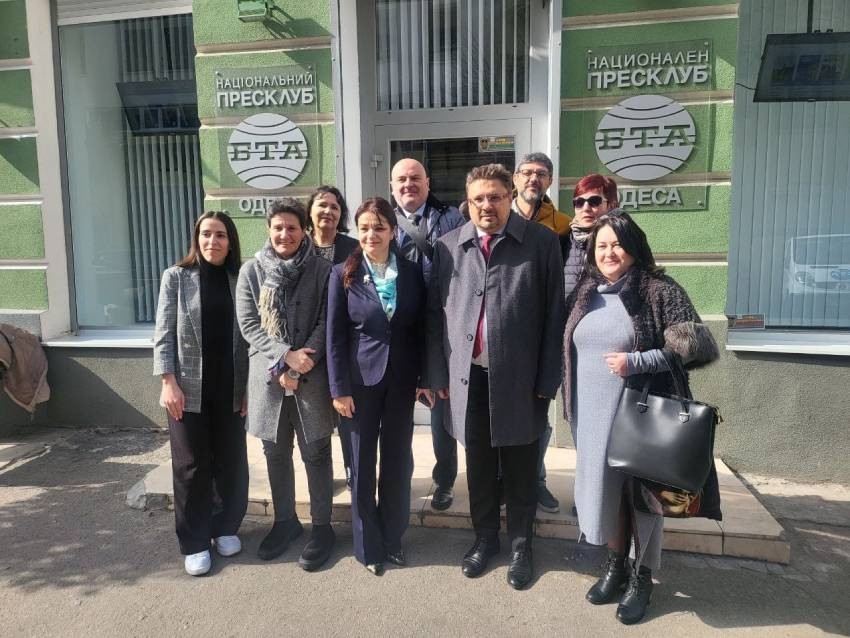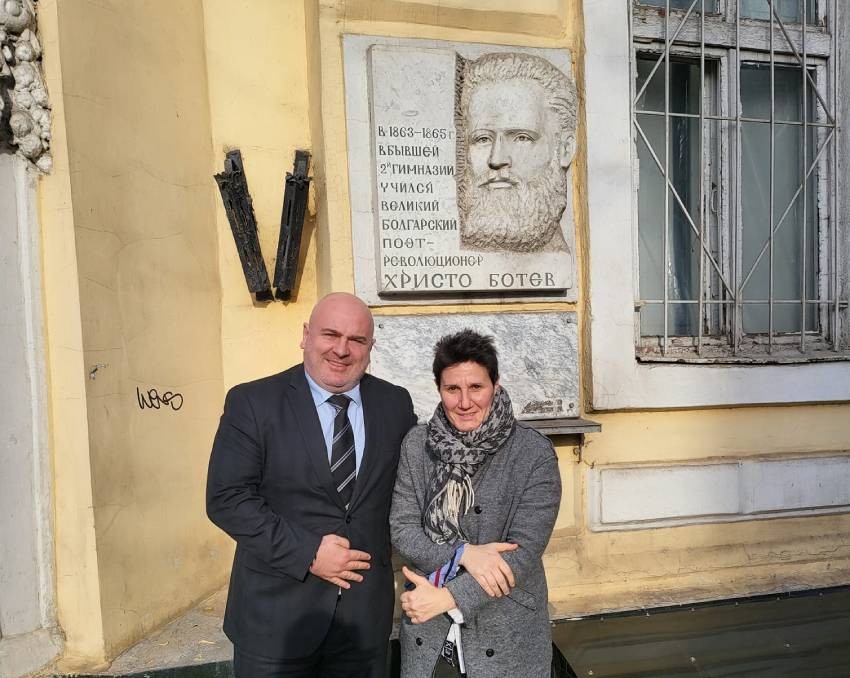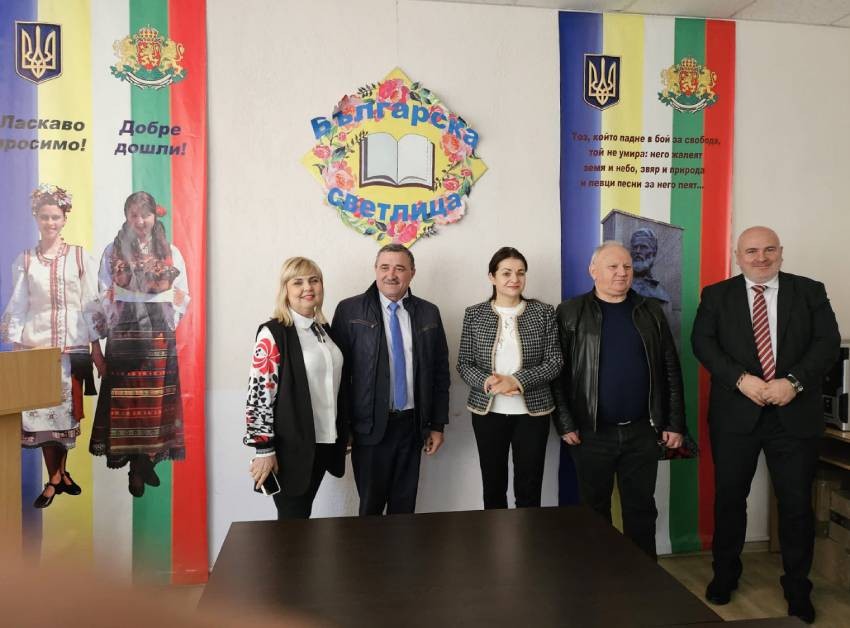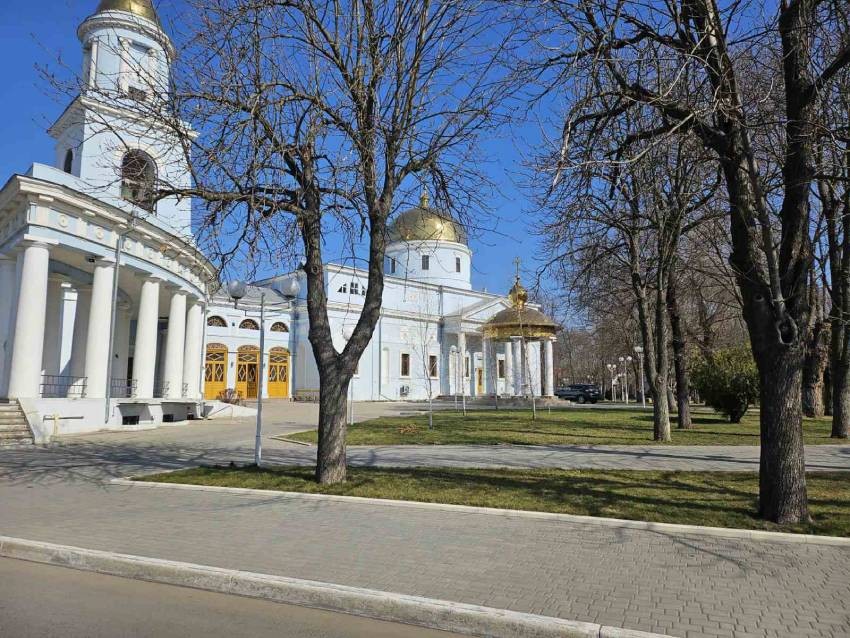At the beginning of the month, the dean of the Faculty of Geology and Geography of Sofia University, Prof. Dr. Kliment Naydenov, visited the Bessarabian Bulgarians in the Ukrainian village of Zorya to make a donation - two laptops, books about Mount Athos by Professor Rumen Penin, as well as publications related to the creator of geographical science in Bulgaria - Academician Anastas Ishirkov. This has been the first initiative of the newly created Explorers Club Bulgaria, as its official presentation is on March 19, in Sofia University.
"We are trying to create a club of researchers that represents a multidisciplinary professional society. It should be dedicated to progress in scientific research, in field research work, in environmental protection and everything that can save our planet and contribute to the development of scientific research in absolutely all fields," Prof. Naydenov says in an interview with Radio Bulgaria.
Among the founders of the club are some of the leading Bulgarian names in geological sciences, history and culture, who are also passionate travelers, such as archaeologist Prof. Nikolay Ovcharov, geographer and writer Associate Professor Georgi Bardarov, writer and traveler Severina Markova.

"We are planning a trip to the largest salt flat in Bolivia and everything that surrounds it. I want to share with your listeners that the largest salt flat in the world also holds the largest lithium deposit, from which mining for the use in electric vehicles starts. Then we would like to visit Algeria in May, where we will go deep into the Sahara desert, where there are rock paintings from the time when the desert was green. We will do a study together with Prof. Nikolay Ovcharov about what happened, what is the status now and the expectations for this desert and the rock paintings as they are under the protection of UNESCO."

The expeditions will be initially financed with personal funds of the participants, as well as with the help of like-minded people. Prof. Naydenov expressed hope that in the future, through these trips, which include both traveling, science and research work, a process will be set in motion, in which many more people will be involved, and the trips will have a cause. "Funds will be allocated from each trip for some social causes. As I told you, the first one was in Ukraine. We saw that it had an effect, people were happy."
"We saw light in the children's eyes and the gratitude was evident,” says Prof. Kliment Naydenov, but he does not hide there was a feeling of tension in the air in Ukraine. His last visit to Odessa was marred by drone attacks.

"Our trip to the village of Zarya, as Bulgarians there call it, was tense, as we had to pass through a lot of military checkpoints. I was very impressed by the village - there are about 5 thousand inhabitants, Bessarabian Bulgarians, 1,700 houses. These people definitely preserve the Bulgarian spirit and tradition. They gave us a very nice welcome, with food that they produced from their land. I felt like I was in a forgotten time. The people were very hospitable. As a person dealing with geography of the settlements in Bulgaria, I was impressed by the very active community center, but also that this village has European, World and Olympic champions, four football teams in 4 age groups, a wrestling team. It turned out that the local landowners support all this, and in addition, bread in the village is free for all."

The strong impressions made the Bulgarian researcher declare his definite readiness to return to these five thousand Bessarabian Bulgarians, but together with his three children. "So that my children can know their compatriots even outside the border, because this is a return to our roots," Prof. Kliment Naydenov says in conclusion.
Publication in English: Al. Markov
Photos: BTA, Sofia University “St. Kliment Ohridski”, personal archive
President Rumen Radev was a guest at the Elhovo holiday and the celebration of 100 years since its declaration as a town, BTA reported. According to the head of state, the border town of Elhovo "is today a place with spirit and traditions, with..
Divers from Burgas' Friends of the Sea association opened the diving season . With the water temperature at seven degrees , they made their traditional spring dive along the coast of Kiten, where underwater remains include ancient artefacts and even a..
On the night of Saturday to Sunday (30 March), at 3am, we need to move the clock forward one hour - to 4am. This will give us an hour less sleep on that particular night, but in the long run we will be able to make better use of daylight, which should..
A pink pelican has become a real attraction for the residents of Varna. Hundreds of people have spotted it in the area of the Marine Station in the..
This year, Orthodox and Catholic Christians will celebrate the Resurrection of Christ togethe r. On the same date, the entire Christian world will turn..

+359 2 9336 661
